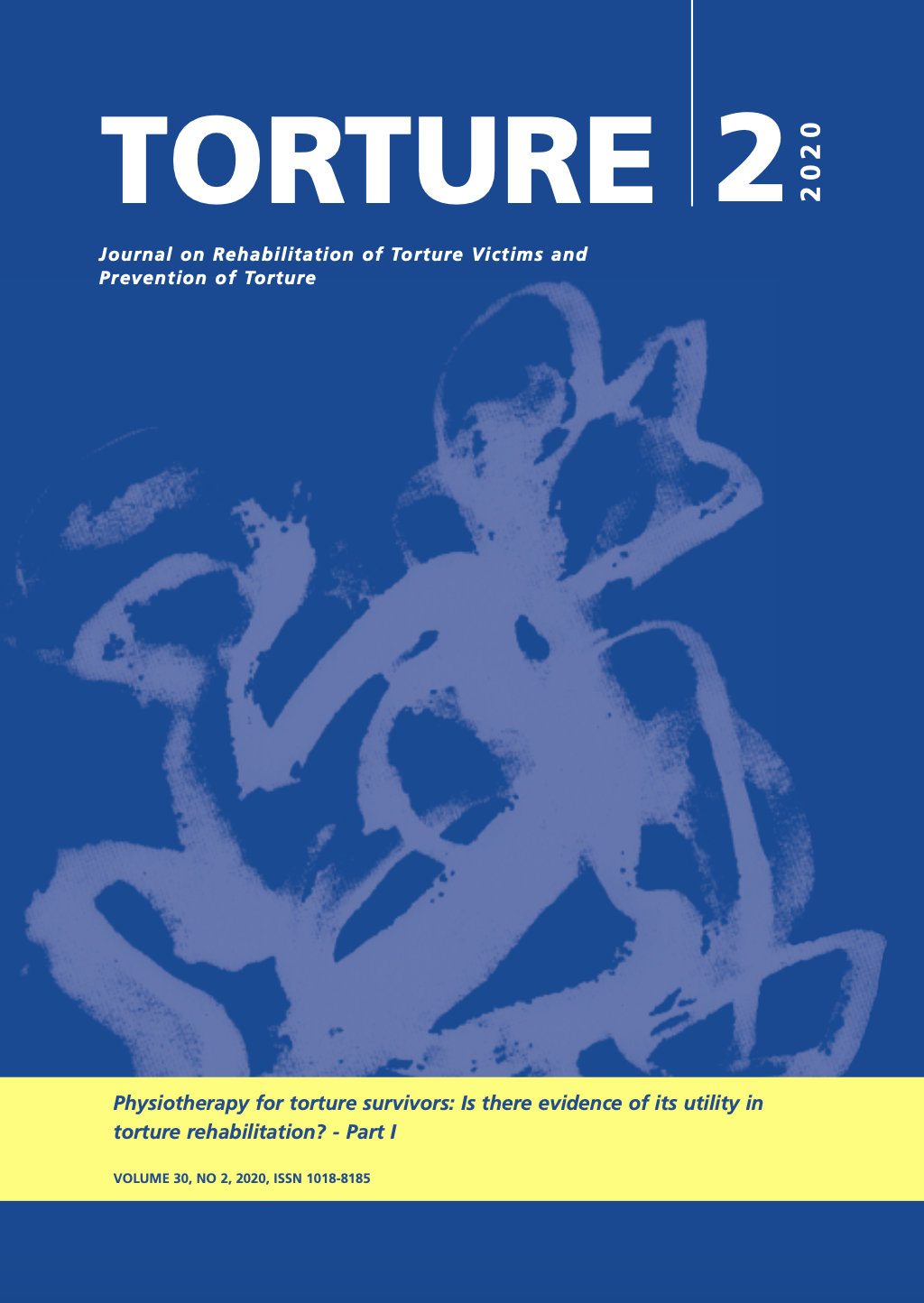Vol. 30 No. 2 (2020): Journal on Rehabilitation of Torture Victims and Prevention of Torture

In this issue, the Editorial reviews the effects of COVID-19 on torture survivors and their communities.
This issue also includes Part I of a Special Section on Physiotherapy as Torture. Under the Special Section:
Iselin Dibaj, Joar Halvorsen, Leif Ottesen Kennair and Håkon Stenmark contribute a narrative review on challenges in trauma-focused therapy for torture survivors with PTSD and chronic pain, showing that there is still not enough support for the widely accepted assumption that addressing trauma can improve chronic pain. April Gamble, Salah Hassan Rahim, Ahmed M. Amin Ahmed and Jeff Hartman present the results of a pilot study on the Effects of a Combined Psychotherapy and Physiotherapy Group Treatment Program for Survivors of Torture with very preliminary, although promising results. Tanju Bahrilli and Hamiyet Yüce present a study on Basic Body Awareness Therapy in hunger strike victims with Wernicke Korsakoff Syndrome, showing improvement in different quality of life indicators in survivors that had been severely handicapped for years.
Additionally, Paula Suárez-López presents a review on the potential of epigenetic methods to provide evidence of torture. Genetic markers, now still at an early stage of development, show enormous potential to detect long-term and trans-generational impacts of chronic trauma in general.
Marie Brasholt, Brenda van den Bergh, Erinda Bllaca, Alba Mejía, Marie My Warborg Larsen, Anne Katrine Graudal Levinsen, and Jens Modvig present results on a study conducted in Albania and Honduras on the risk of sanctions following visits by monitoring bodies to detention centers, that shows that this is a relevant and neglected area in the prevention of torture. The results are alarming and show that a very significant percentage of people interviewed suffer some kind of harassment or reprisal following the visits.
This issue includes a Debate in which, Sara López poses the complex question: What are the ethical dilemmas and proposed criteria when a (potential) perpetrator asks for forensic documentation of their own alleged torture. The author proposes three criteria that can be applied by forensic experts and organizations. Four expert authors, Juliet Cohen, Elizabeth Lira, Henry Shue and Onder Ozkalipci, provide insights on the proposal with a final wrap-up and answer from the author.

